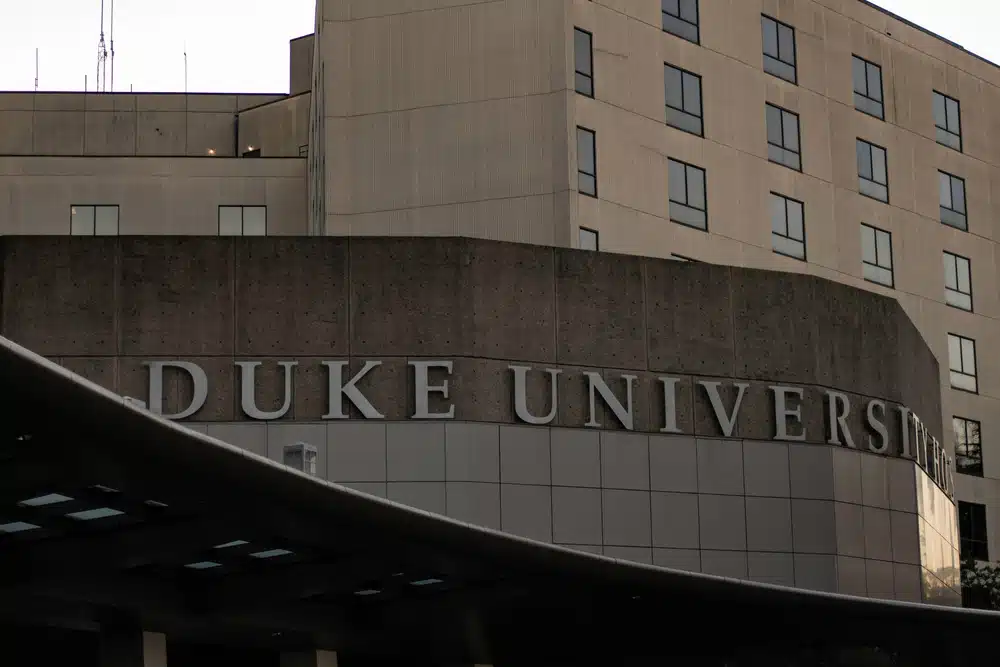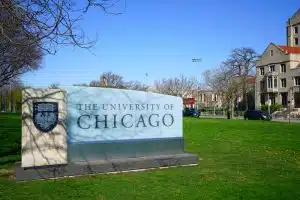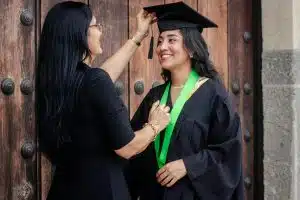Duke University, situated in Durham, North Carolina, has over the years established itself as a focal point of knowledge, innovation, and culture. The university’s unique traditions, commonly referred to as Duke traditions, form an integral part of its identity and provide students with an enriching experience beyond academics. This piece shines a light on the fascinating traditions of Duke University that have captivated individuals across generations.
The Historical Background of Duke University Traditions
The rich history of the traditions at Duke University traces back to its establishment in 1838. Originally called the Union Institute, the institution was later named Duke University in 1924, in honor of Washington Duke – an industrialist and philanthropist.
As Duke University began to take shape, it quickly became a center of intellectual and cultural growth. The campus, nestled in the picturesque city of Durham, North Carolina, became a hub for students seeking knowledge and enlightenment. With its stunning Gothic architecture and sprawling green spaces, the university provided a serene backdrop for the development of its traditions.
The Founding Principles and Their Influence on Traditions
Imbued with the values of education, service, and excellence, Duke University strives to imbibe these founding principles into its traditions. The traditions offer a historical context while fostering a sense of community, thus making the overall university experience more enriching and meaningful for its students.
One of the core principles that shaped Duke University’s traditions is the pursuit of knowledge. From the early days, the university emphasized the importance of intellectual curiosity and critical thinking. This commitment to academic excellence laid the foundation for traditions that celebrate scholarly achievements and encourage students to push the boundaries of their intellectual pursuits.
Another fundamental principle that influenced Duke’s traditions is the spirit of service. Inspired by the philanthropic legacy of Washington Duke, the university has always encouraged students to give back to their communities. This spirit of service is reflected in various traditions, such as volunteer programs, community outreach initiatives, and partnerships with local organizations. Through these traditions, Duke University instills in its students a sense of social responsibility and the importance of making a positive impact on the world.
Evolution of Traditions Over the Years
Over time, Duke University’s traditions have evolved and adapted, reflecting the changing times and responding to the needs of the student body and the society at large. These shifts have resulted in traditions that not only honor past history but also prepare students for a future of diverse and inclusive societies.
One notable evolution in Duke’s traditions is the emphasis on diversity and inclusion. As the world became more interconnected, Duke recognized the importance of embracing different cultures, perspectives, and identities. This led to the establishment of traditions that celebrate diversity, such as cultural festivals, awareness campaigns, and inclusive events. By fostering an environment that values and respects diversity, Duke University prepares its students to thrive in a globalized world.
Furthermore, Duke’s traditions have also adapted to incorporate advancements in technology and innovation. With the rapid pace of technological advancements, the university recognized the need to equip its students with the skills and knowledge necessary to navigate the digital age. This led to the integration of technology-focused traditions, such as hackathons, entrepreneurship programs, and interdisciplinary research projects. These traditions not only encourage students to embrace innovation but also provide them with practical experiences that prepare them for the ever-evolving job market.
In conclusion, Duke University’s traditions have a deep-rooted historical background that is shaped by its founding principles and influenced by the changing needs of society. These traditions not only connect students to the university’s rich history but also provide them with valuable experiences and skills that will serve them well in their future endeavors.
Understanding the Academic Traditions at Duke
Duke’s academic traditions reveal a scholarly, engaged, and innovative community. These traditions provide a structure and rhythm to academic life, grounding students in their educational journey.
The Significance of the Duke Chapel Ceremony
The Duke Chapel Ceremony is a landmark event marking the beginning of a student’s journey at Duke. It fosters a sense of belonging, signifies the unity of the Duke community, and emphasizes the university’s commitment to holistic development.
During the Duke Chapel Ceremony, students gather in the grandeur of the Duke Chapel, a magnificent architectural masterpiece that stands as a symbol of the university’s rich history and spiritual foundation. The ceremony begins with a solemn procession of faculty members, dressed in their academic regalia, representing the collective wisdom and knowledge that Duke embodies.
As the students take their seats, anticipation fills the air. The sound of the organ reverberates through the chapel, creating a sense of awe and reverence. The ceremony is led by distinguished speakers, who share inspiring words of wisdom and encouragement, setting the tone for the students’ academic journey ahead.
One of the most significant moments of the Duke Chapel Ceremony is the recitation of the Duke University Creed. This powerful declaration of values and principles serves as a guiding light for students, reminding them of their responsibilities as members of the Duke community and as future leaders in their respective fields.
Throughout the ceremony, the sense of unity and camaraderie among the students is palpable. They are surrounded by their peers, faculty members, and university administrators, all of whom are committed to their success and growth. This collective support system creates a strong foundation for students to thrive academically, socially, and personally.
The Tradition of the Faculty Procession
The faculty procession, where professors don their academic regalia and march in procession, exemplifies Duke’s respect for scholarship and teaching. This tradition highlights the importance of academic unity and the role faculty members play in guiding students.
As the faculty members prepare for the procession, they meticulously put on their academic regalia, each garment symbolizing their academic achievements and expertise. The regalia serves as a visual representation of the faculty’s commitment to excellence in teaching and research.
With heads held high and a sense of purpose, the faculty members march in unison, creating a striking sight. The procession is not merely a symbolic gesture, but a tangible manifestation of the collective knowledge and experience that Duke’s faculty brings to the table.
As the faculty members pass by, students are filled with a sense of admiration and respect. They recognize that these professors are not just educators, but mentors and role models who are dedicated to their intellectual growth and success. The faculty procession serves as a reminder of the immense privilege it is to be a part of the Duke community and the responsibility that comes with it.
Moreover, the faculty procession also symbolizes the interconnectedness of knowledge across disciplines. As professors from various departments and schools march side by side, it highlights the interdisciplinary nature of education at Duke. This cross-pollination of ideas and perspectives enriches the learning experience and encourages students to think critically and explore new horizons.
In conclusion, the Duke Chapel Ceremony and the faculty procession are integral components of Duke’s academic traditions. These rituals not only provide a sense of belonging and unity but also emphasize the university’s commitment to academic excellence and holistic development. They serve as powerful reminders of the transformative power of education and the profound impact that Duke has on its students’ lives.
Duke’s Unique Sporting Traditions
Athletics at Duke University is another fascinating realm where many traditions unfold. Sports are appreciated as much as academics, and students equally partake in these traditions, fostering a deeper sense of camaraderie.
One of the most iconic and beloved sporting traditions at Duke is the Cameron Crazies Phenomenon. This tradition involves students cheering passionately for the Duke Blue Devils basketball team at the Cameron Indoor Stadium. The energy and spirit displayed by students during games is truly remarkable. The Cameron Crazies, known for their wild and enthusiastic cheers, create an electrifying atmosphere that is unmatched in college basketball. From painting their bodies blue to wearing outrageous costumes, the Cameron Crazies go above and beyond to show their unwavering support for the team. It is this unique tradition that has made Duke basketball games a must-see event for sports fans around the world.
In addition to the Cameron Crazies, Duke University also celebrates the Annual Homecoming Parade as a major sporting tradition. This vibrant event brings together students, alumni, and the local community to celebrate the university’s rich sports culture. The Homecoming Parade is a spectacle of creativity and school spirit, with colorful floats, marching bands, and enthusiastic participants. The streets come alive with cheers and applause as the parade passes by, showcasing the deep connection between Duke and its sports traditions.
But the sporting traditions at Duke go beyond basketball and parades. The university boasts a wide range of athletic programs, each with its own unique traditions. From the football team’s pre-game rituals to the soccer team’s post-game celebrations, every sport at Duke has its own set of customs that contribute to the vibrant sports culture on campus.
For example, the Duke football team has a tradition known as the “Devil’s Walk.” Before every home game, the players and coaches make their way through a sea of cheering fans, creating an electric atmosphere that sets the tone for the game. This tradition not only brings the team and the fans closer together but also serves as a symbol of the unwavering support that the Duke community has for its athletes.
Another notable tradition at Duke is the “Victory Bell” tradition. This tradition dates back to 1948 when the university acquired a bell from a decommissioned World War II warship. After every home victory by the football team, the players and fans gather around the Victory Bell to ring it in celebration. The sound of the bell echoes across campus, signifying another triumph for Duke athletics.
These are just a few examples of the many unique sporting traditions that make Duke University a special place for athletes and fans alike. Whether it’s the passionate cheers of the Cameron Crazies or the festive spirit of the Homecoming Parade, these traditions play a vital role in creating a sense of community and pride within the Duke sports culture.
Social and Cultural Traditions at Duke
Besides academics and sports, Duke University also has a myriad of social and cultural traditions that make it a lively hub for students from diverse backgrounds.
One of the most cherished traditions at Duke is the Old Duke. This tradition, which pays homage to the bulldog mascot, has become an integral part of campus life. Throughout the year, students eagerly participate in numerous events that revolve around the Old Duke, bringing a sense of fun and unity to the campus. From spirited pep rallies to tailgate parties, the Old Duke tradition fosters a strong sense of school spirit and camaraderie among the student body. It is not uncommon to see students proudly donning Duke blue and white, displaying their love and support for their beloved bulldog mascot.
But it’s not just the Old Duke tradition that adds vibrancy to campus life at Duke. The university is also home to a number of secret societies, which play a significant role in shaping the traditions and rituals that students engage in. These secret societies, often shrouded in mystery, have a long-standing history at Duke and have become an intriguing aspect of campus life. Students who are invited to join these societies become part of an exclusive group, bound by secrecy and shared experiences. The rituals and traditions associated with these societies are passed down from generation to generation, creating a sense of continuity and tradition that adds depth to the Duke experience.
Participating in these secret societies not only provides students with a sense of belonging and camaraderie, but it also offers them unique opportunities for personal and professional growth. Members of these societies often form strong connections that extend beyond their time at Duke, opening doors to future collaborations and networking opportunities. The influence of these secret societies can be seen in various aspects of campus life, from the organization of events to the shaping of campus traditions.
Overall, the social and cultural traditions at Duke University contribute to the vibrant and diverse atmosphere on campus. Whether it’s the spirited celebrations of the Old Duke or the intrigue surrounding the secret societies, these traditions create a sense of community and pride among students. They serve as a reminder of the rich history and traditions that have shaped Duke into the esteemed institution it is today.
The Impact of Duke’s Traditions on Student Life
Spanning academics, athletics, and arts, traditions at Duke greatly impact student life. They enable students to connect with each other and the university community, shaping a unique student identity deeply rooted in Duke’s ethos.
Fostering a Sense of Community Through Traditions
Collective participation in traditions is instrumental in fostering a sense of community. It is through these traditions that students find their place in the Duke family, forging lifelong connections and making unforgettable memories.
Traditions and the Duke Student Identity
Finally, traditions play a crucial role in shaping the Duke student identity. They allow students to appreciate the history and values of the university, imparting a deep sense of belonging and pride, ultimately culminating in a strong, distinctive Duke identity that remains with students long after they have graduated.








































